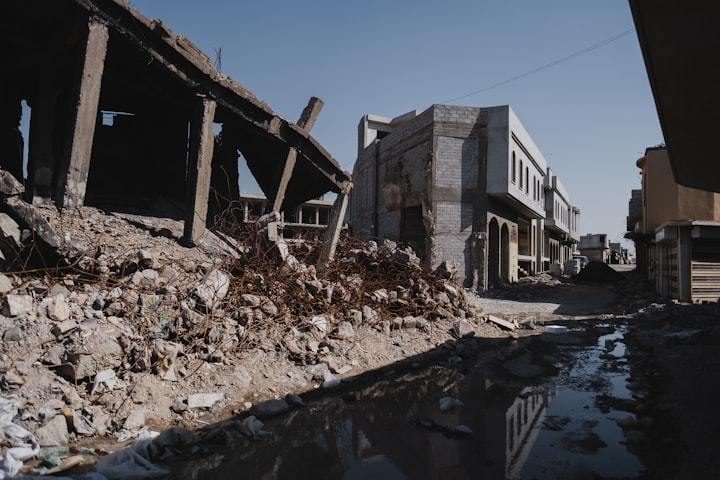One Crucial Nutrient During Threat of Nuclear War
This is crucial

Nuclear war is one of the scariest scenarios anyone can think of.
With Putin upping his rhetoric in earlier months, and because the man is not exactly the most sane individual. People are wondering what they can do to mitigate the threats of the radiation effects.
We have the principle of deterrence in the nuclear weapons power balance called MAD (mutually assured destruction) which essentially is a principle that if one super power attacks with their nuclear arsenal then the opposing superpower will do the same, and both attacker and defender will be annihilated.
With Putin being a tyrant. (Anyone who poisons, or eliminates, their political opponents cannot be anything but a tyrant.)
We are a lot closer to the principle of MAD playing out in a way contrary to the intended principle, by potentially unbalanced leaders worldwide. Not only that, we have several other nuclear actors on the stage, so the world is not in a very good state. We have entered a very dangerous era of history where technology and weaponry are now at a point to destroy all life on the planet.
Nuclear leaks (Chernobyl and Fukushima) and blasts have pointed towards a supplement that reduces thyroid cancer caused by radioiodine exposure, which leads to thyroid cancer.
One supplement that seems to have some effect on mitigating the destruction caused and the disease and suffering caused by nuclear radiation is iodine, taken in a form of a liquid or potassium iodide.
I quote from a Pub Med article:
‘Administration of potassium iodide as a dietary supplement reduced this risk of radiation-related thyroid cancer by a factor of 3’
Central Europe and the previous Soviet run countries have been the most vigilant about stocking up on iodine supplements, as nervousness increased around what Putin was saying.
‘ “In the past six days Bulgarian pharmacies have sold as much [iodine] as they sell for a year,” said Nikolay Kostov, chair of the Pharmacies Union. “Some pharmacies are already out of stock. We have ordered new quantities but I am afraid they will not last very long.”
“It’s been a bit mad,” said Miroslava Stenkova, a representative of Dr. Max pharmacies in the Czech Republic, where some stores had run out of iodine after demand soared.’
Timing is crucial when supplementing in times of nuclear radiation. The best time would be prior to radiation exposure, second best will be one to two hours after. The longer you wait, the less the risk can be mitigated, so time is of the essence.
Also, if the exposure to radiation is longer term, repeat doses every 24 hours will be required.
Humans cling to hope in all circumstances and some opposing articles think that supplementing with iodine in the case of a nuclear war is futile.
These more pessimistic outlooks have a point because radiation affects not only the thyroid, gland, but all organs of the body are affected, so it could be a case of re-arranging the deck chairs on the Titanic…
I suppose the human instinct to survive makes us cling to life in whatever scenario, even if it seems futile, we need to comfort ourselves that we did something.
I quote from Radiation Emergency Medical Treatment (US Department of Health and Human Services.)
‘Potassium iodide (KI) blocks uptake of radioactive iodine by the thyroid gland.
KI protects only the thyroid from radioactive iodine uptake. KI does not provide protection for any other organs.
KI is effective as a radiation medical countermeasure only for internal contamination with radioactive iodine. KI does NOT prevent or treat problems due to internal contamination from any other isotope.
When to take KI
KI is highly effective if taken several hours before inhaled contamination with radioactive iodine.
Taking KI within 1 to 2 hours after inhalation of I-131 can block more than 90% of the radioactive iodine uptake by the thyroid.
If KI is taken more than 4 hours after inhalation of I-131, much less thyroid uptake of I-131 is blocked.
KI is even less effective at preventing radioiodine uptake by the thyroid if taken more than 12 hours of a time-limited contamination episode.
Since the protective effect of a single dose of KI lasts approximately 24 hours, repeat KI administration may be indicated for some members of the public where contamination is continuing or ongoing.’
Hopefully, we never have to take the advice above.






Comments
There are no comments for this story
Be the first to respond and start the conversation.